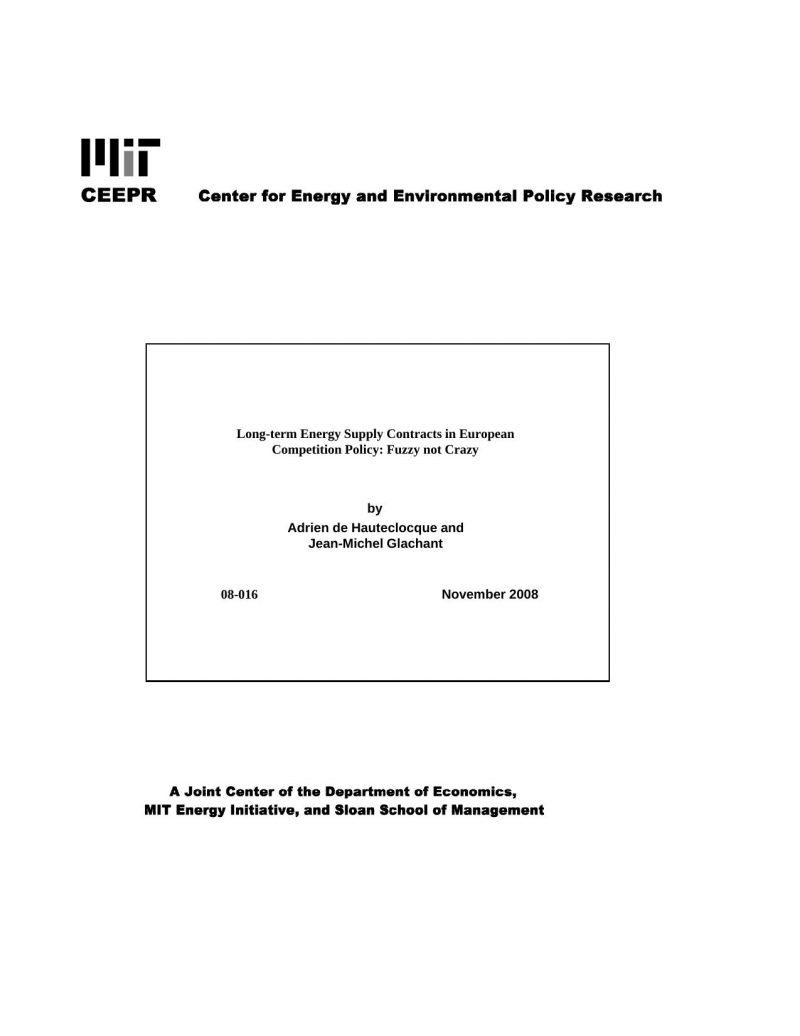Long-term Energy Supply Contracts in European Competition Policy: Fuzzy not Crazy
Adrien de Hauteclocque and Jean-Michel Glachant
08-Nov
Long-term supply contracts often have ambiguous effects on the competitive structure, investment and consumer welfare in the long term. In a context of market building, these effects are likely to be worsened and thus even harder to assess. Since liberalization and especially since the release of the Energy Sector Enquiry in early 2007, the portfolio of long-term supply contracts of the former incumbents have become a priority for review by the European Commission and the national competition authorities. It is widely believed that European Competition authorities take a dogmatic view on these contracts and systemically emphasize the risk of foreclosure over their positive effects on investment and operation. This paper depicts the methodology that has emerged in the recent line of cases and argues that this interpretation is largely misguided. It shows that a multiple-step approach is used to reduce regulation costs and balance anti-competitive effects with potential efficiency gains. However, if an economic approach is now clearly implemented, competition policy is constrained by the procedural aspect of the legal process and the remedies imposed remain open for discussion.



